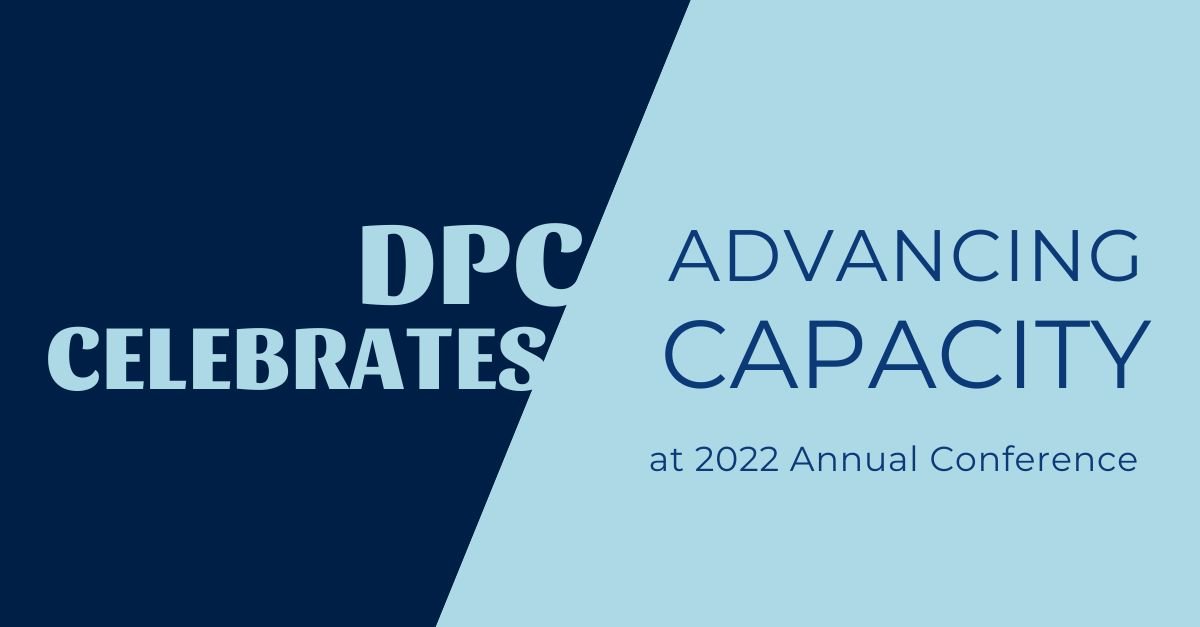
DPC Celebrates Advancing Capacity at 2022 Annual Grantees Conference
By Melissa Simon
July 8, 2022
Diversity Program Consortium members from across the nation came together for a two-day event to share data, findings, outcomes and early metrics on approaches to mentorship, training and institutional capacity building.
On June 13 and 14, nearly 200 DPC members attended the virtual 2022 DPC Annual Grantees Conference to hear updates and research findings from their peers in the DPC and the National Institutes of Health (NIH).
Alison Gammie, PhD, the director of the Division of Training, Workforce Development and Diversity (TWD) at the National Institute of General Medical Sciences (NIGMS), NIH, and the DPC program lead, opened Day 1 with a short welcome to attendees. Similar to her welcome letter (included in the conference program), she described how the DPC’s goals of building a more inclusive and equitable future in the biomedical research workforce remain as important as ever and continue despite the challenges brought about by the pandemic.
“Sometimes, the tasks of managing the everyday might feel insurmountable in light of the broader societal issues we face. However, we can draw inspiration and hope from our trainees, our colleagues, and this group's continued work toward affecting positive change in the realms of biomedical research, training, and mentoring,” Gammie said in the welcome letter.
"We celebrate our progress as a consortium while acknowledging that we still have much work to do — so that one day, we can provide all researchers with an opportunity to succeed.”
The conference program and other related materials can still be downloaded from the website.
Following Gammie, Marie A. Bernard, MD, the Chief Officer for Scientific Workforce Diversity (COSWD) at the NIH, presented on new NIH programs focused on equity, inclusion and diversity, such as the UNITE initiative and the development of the COSWD 5-year Strategic Plan. She also highlighted funding opportunities.
On Day 1, leaders from the Coordination & Evaluation Center at the University of California, Los Angeles, shared preliminary analyses of the BUILD programs and their impacts of persistence in biomedical majors and science identity.
Additionally, Michael Sesma, PhD, moderated a symposium on sharing data about approaches to promoting more equitable research training capacity that featured speakers representing the BUILD, NRMN, U01, DPC DaTA and SPAD awards. Sesma is the Chief of the Postdoctoral, Early Career and Workforce Development Training Branch in the TWD at the NIGMS.
On Day 2, guests had the option to choose between sessions about the following topics: understanding recruitment practices and retention strategies; exploring effects of the pandemic on students; sharing authentic stories about lessons learned from the BUILD program; implementing a research training model; learning about factors that influence inclusion measures in STEM; creating pilot programs and monitoring their success; and overcoming challenges to publishing.
At the close of Day 2, session leads had the opportunity to briefly discuss what they talked about and answer any questions from the audience. Robert Rivers, PhD, Program Director for the Office of Minority Health Research Coordination at NIH’s National Institute of Diabetes and Digestive and Kidney Diseases (NIDDKD), moderated the closing session reflecting on the content and purpose of the conference.
Visit the conference website to read about the moderators, speakers and session leaders who presented on Days 1 and 2 of the event.
Post-conference surveys of attendees showed that sessions provided participants an opportunity to learn programming tips and strategies, discuss shared experiences, challenges and solutions, and build knowledge, networks and collaborations. DPC members emphasized they were united in the work and saw value in the research.
Comments made in the surveys included:
“Much to do and we need each other to do it”
“I am not working alone.”
“Importance but complexity of our work. Energized to think creatively.”
The work of the DPC is far from done and as one noted, “we’ve collected enough data to begin answering the audacious questions we set out to answer.” Another echoed, “we need to support each other in those efforts.”
To further the impacts of the conference, program materials are still available through the website and recordings of all sessions can be requested by emailing info@diversityprogramconsortium.org.
The Diversity Program Consortium Coordination and Evaluation Center at UCLA is supported by Office of the Director of the National Institutes of Health / National Institutes of General Medical Sciences under award number U54GM119024.

Grow Together.